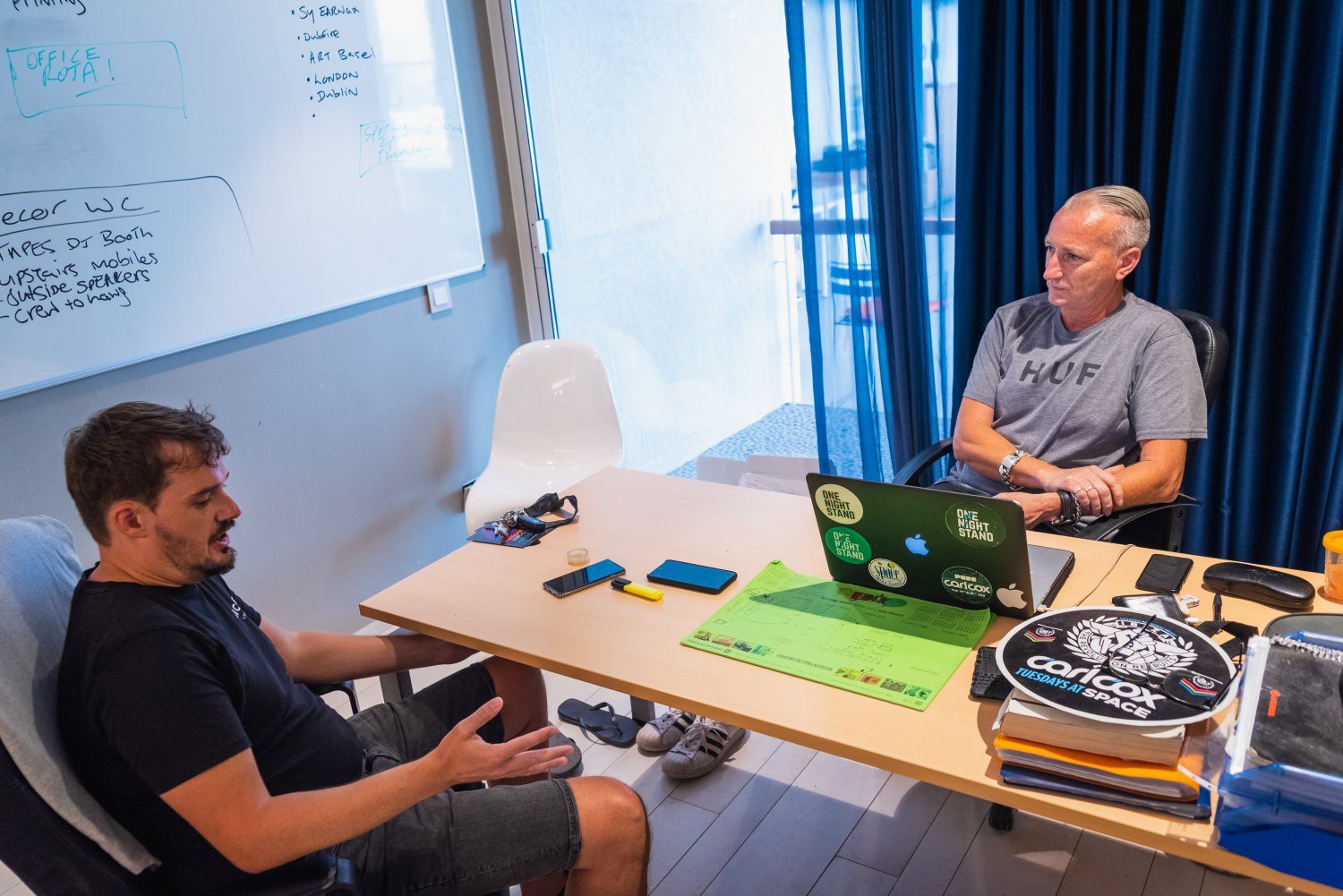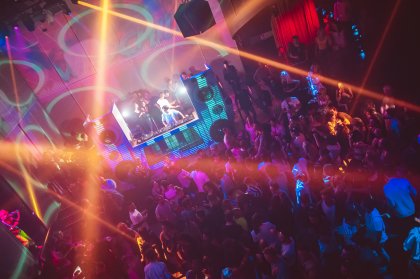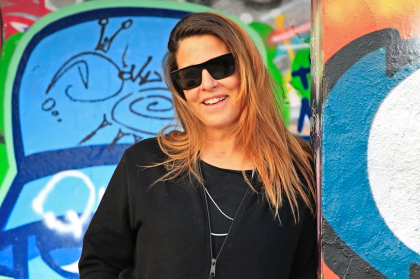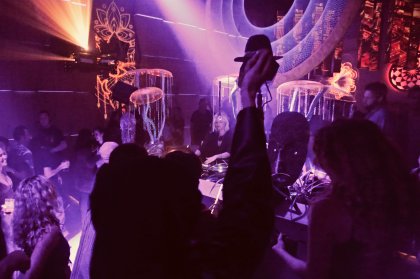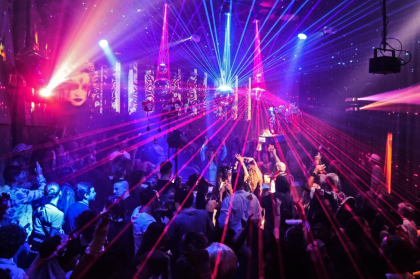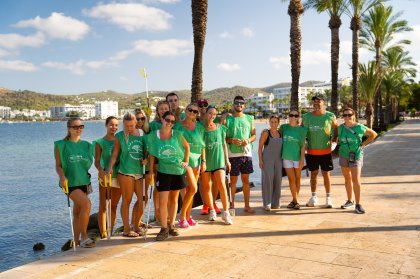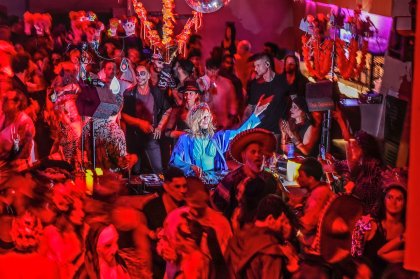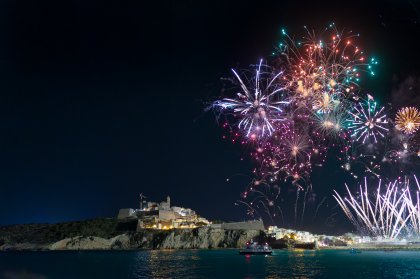"Shall I go and pull out a couple of records?"
It wasn't the opening gambit we were expecting, but a welcome one. Heading into any interview is often a voyage into the unknown - in the hope that something interesting might come up in conversation. That Dave Browning delivered within seconds of our arrival was a good omen.
He might be a name you have heard before, but regardless of if you know, the individual chances are you will be familiar with Dave Browning's work. Formerly, as head promoter, Dave had been the driving force behind Carl Cox's 15-year stint at Space Ibiza.
Today, he is one half of the Game Over team - the entity born from the ashes of said residency. Soon to be celebrating three years working under that banner, Dave and his business partner Eóin have been keeping busy with a portfolio of events in the wake of Space's demise.
Most recently, his name has received more column inches, by being the fourth member of the consortium that is bidding to revive Space on the island. Alongside Coxy, former Space GM Juan Arenas and legendary founder Pepe Rosello, the group has ambitious plans for the future of the brand.
Before we discuss the rumour mill surrounding a highly anticipated return, top of the agenda was Game Over's latest brain-child, appropriately named WILDCHILD. Whilst this was the primary reason for our visit to Dave's offices, his mammoth haul of records proved to be a distraction.
Record picking with Dave Browning
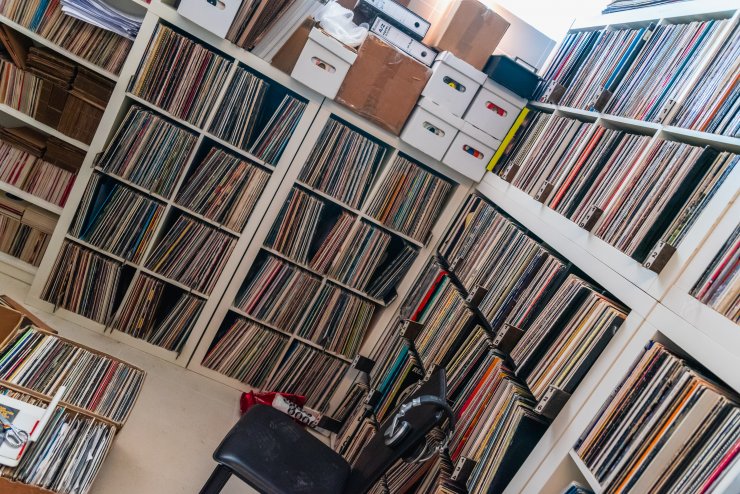
Partly in storage, but also - we suspect - partly so they can never be too far away, sits Dave Browning's expansive record collection. Or at least part of it. It's so big, he's had to divide it between here and his flat. Tucked away in a corner of the office space, it's a genuine Aladdin's Cave of music.
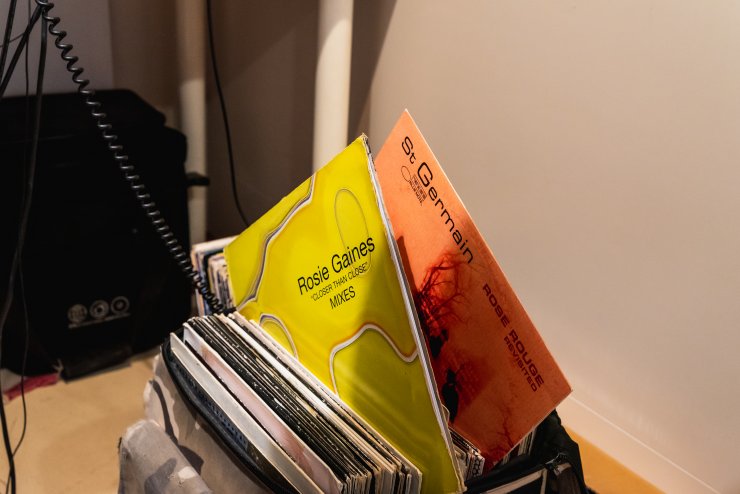
Can you remember what year you started the collection?
Dave Browning: Erm, I've been buying records for far too long. I used to have jobs in record stores - that's how it all started. Initially, it was a rare groove. I was buying a lot of records, going to America for probably a third of the year, travelling around buying what I could. It was a massive amount of records.
Where have you carted them all from, from around the world?
DB: Yeah from America to the UK to here. When I first moved to Ibiza from the UK, I had an artic - a proper lorry full of records. I actually had 325 boxes that held 125 records each custom-made in a place in Hackney.
They filled them up, and when the guy came to pick them up, he said, "how many you got?" and I said probably about 300 something like that. He said that'll be fine. But when we came to load it up, oh my god! Ridiculous! Yeah, tonnes. Tonnes and tonnes!
How many are there in total?
DB: Probably about 35,000 - 40,000 something like that. I used to be a big seventies collector - that was my thing. When I started off, the first scene I was into was northern soul. Then from there, I got into house music, so I spent a lot of time going to the United States to look for records.
A lot of these records I can even remember when I bought them. Ridiculous!
I ended up going to Chicago to DJ International and went to the Warehouse which was opposite the DJ International building, where their studio is. Fast Eddie was playing at the time. Nuts. Completely nuts! I came back and Tony Humphries was playing!
Friends of mine did a party with Tony Humphries. He turned up in this stretched limo, did this party in London and he completely blew my mind. And I was like “fuck,” this whole scene is completely different to anything I was familiar with.
Can you remember the first record in your collection?
DB: No. (laughs) When I was 14/15, I was going out with a girl whose parents had a record shop in Seaford - I'm from Sussex originally. And this guy came in and gave them a load of soul music. Disco and stuff like that, he just gave it to the shop and they let me have it. That's how I got into it.
That's how it started.
DB: Amazing! At home, my parents used to play Simon & Garfunkel, all that sort of shit. My older brother played Pink Floyd exclusively and the other end of the spectrum to me.
What's this one playing now?
DB: Tim Deluxe - who you'll know from the track Just Won't Do - he used to be my Saturday boy in the record shop. He started working for me when he was 14 years old. He came in the shop one day and Kerri Chandler's Atmosphere had just come out on the import bands.
DB: They would come to the shop and walk in with a big stack of records and then you'd just bounce through them. And Atmosphere came out, and it had this track on it. And I said "I'll have ten copies of that" or something, and this 14-year-old kid said, "are you sure?"
"No, no that's gonna be massive." And it went on to become one of my favourite records. Fucking hell, he's 14 years old and he heard it like that. Amazing.
And this is all the kind of stuff we can expect to be hearing at WILDCHILD?
DB: Yeah. Nice house music. Good quality house music. We want to play house music that people understand. This isn't a smart party - it's not an underground party, we already do plenty of those.
Game Over's enfant terrible
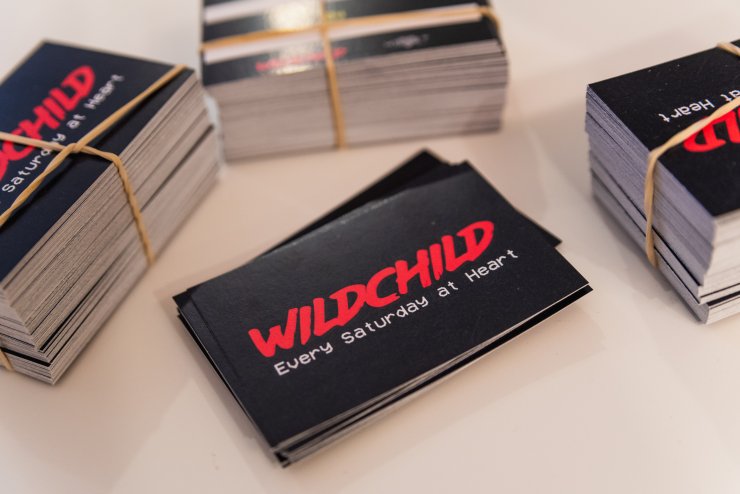
Increasingly, the trend for extended weekend visits has seen a nucleus of popular parties operating from Friday to Sunday. In an already competitive few days, Game Over has launched its latest creation this summer.
WILDCHILD is the retro party with adolescent attitude. A raft of accomplished veteran DJs has steered the ship at HEART on Saturdays in the opening few weeks. As the artwork instructs, remain untamed.
Let's talk a bit about the concept behind WILDCHILD and how it came about?
Dave Browning: It was actually Eóin (Smyth)'s idea. One day he said, we're doing loads of underground parties, why don't we do something that's a little bit more accessible?
It's a little bit of a throwback using the 90's house music as the template. Lots and lots of classics - accessible music and it's working really well so far.
WILDCHILD is one month in now and the line-ups for the first few parties have been completely different. Plus, you've looked to seasoned heads - guys that are veterans. They're not big names per se, but they've put the hours in and know their beans.
DB: Yep.
What made you choose HEART?
DB: HEART was the perfect venue for it. The sound system there is absolutely amazing. It's super well-organised, and if we're looking to do something for around a thousand people - that's the ideal venue.
You know, we've done events in Amnesia and Privilege, well, everywhere. And for that concept, I think it suits it because it's aimed at being a little bit more accessible. We do plenty of underground parties and if we're doing something at DC10 that's an underground line-up.
A few weekends ago, we had Seb Zito playing a '90s garage set. He sent us a video saying it's the first time in twenty-years he's been able to do something like that. Amazing! It gives all the DJs a chance to play something a little bit outside the box.
It certainly adds variety to what's already on offer on the island.
DB: It's the spice of life, I'm told!
Was it a conscious decision to release the line-up week by week, like Circoloco do, as opposed to ‘here's our roster for the whole summer?'
DB: I mean, I have to be perfectly honest: it's becoming very complicated to get line-ups together in the current climate. You know, we can't compete with some of the bigger clubs with headliners - the numbers just don't stack up anymore.
Instead, we're looking for people who are going to provide really good quality music who want to come and play for a party which allows them to do something a little bit different.
Right. The other interesting thing with HEART, is it's quite an unusual crowd in a way. ‘Cause you have the affluent diners there...
DB: The transition! The transition is a really complicated thing to do. We threw a party there in the winter with Cassy and Tania Vulcano. Amazing! A proper underground crowd in there. But during the summer, you get people who come in there, they have their dinner, and then they want to have a little dance afterwards, so it has to be a little bit more palatable.
Are there any other DJs booked for WILDCHILD coming up that you could tell us about?
DB: We're sticking to the format of releasing our line-ups weekly, so I'd rather not ruin the surprise. But what I can say is we have got some really interesting DJs lined up. We have one or two whom you would probably call “headliners” that are going to come and play unannounced.
That's gonna be really interesting. This weekend coming we've said that this is probably gonna be the benchmark of where we're gonna be musically. We're confident it's gonna work really well.
The changing landscape of the music industry
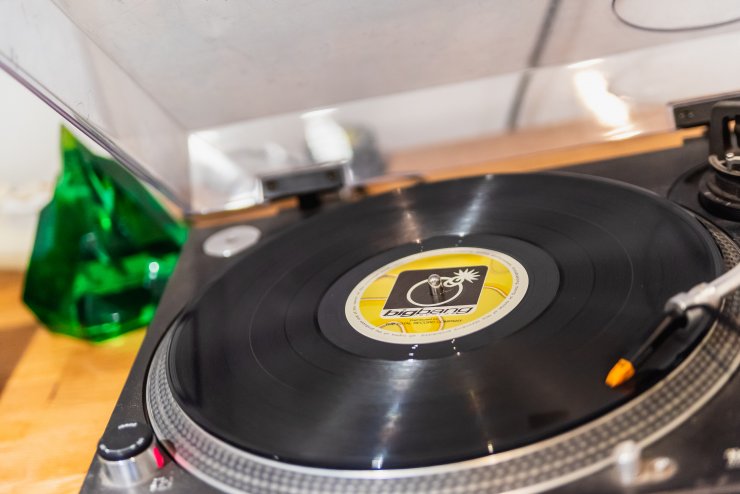
Despite the fact he's done very well to stay young at heart, it's clear that Dave has a hankering for the old times. A bygone era, when music's shelf-life had a longer expiry and DJs honed their craft.
Not that he's a technophobe - far from it. Arguably, he's a reluctant technophile, embracing the new wave of innovations, albeit with sceptical ire. More than happy to push mod-cons to the side, his unerring passion for records runs deep.
Like a child enthusing about their latest gadget, when he breaks into conversation, it's impossible to divert him back on track. Not that we had any inclination to do so. The rest would come in good time.
Dave Browning: I got into spending most of my life looking for records. Even now, anywhere I go, the first thing I do is try and go buy some records.
It's hard to get out of that frame of mind. That's your passion.
DB: Yeah, that's my thing. That's absolutely my thing.
Do you have any favourite record stores to go to?
DB: Anywhere that's got records, really. Anywhere that's got records that are interesting.
Has it become harder to dig?
DB: Yeah, the internet's fucked it, hasn't it? Let's face it. I started going to the United States when they didn't have a clue on anything. The very first trip I went on, I went with a friend of mine. We sold everything we had, flew to New York, went around some record shops, then we flew to a place in San Francisco.
It had a warehouse, we were going to places, picking out records in record shops. Quite often we'd go into a record shop and by the door would be a dump bin, and they'd have a cross on the label. If you brought a record, you'd get them free. And you know, that was all the shit we wanted!
They'd say, "we don't want you bringing any of that shit back." A lot of the time it had been sitting there for 15 years and no one ever brought it, and we would go in there and just clean them out.
The United States was producing better records than we were for years! But in the States, you'd go to New York and you'd go to Chicago and it was completely different from the scene in Detroit. You go to somewhere like Minneapolis and talk about house music, they didn't have a fucking clue!
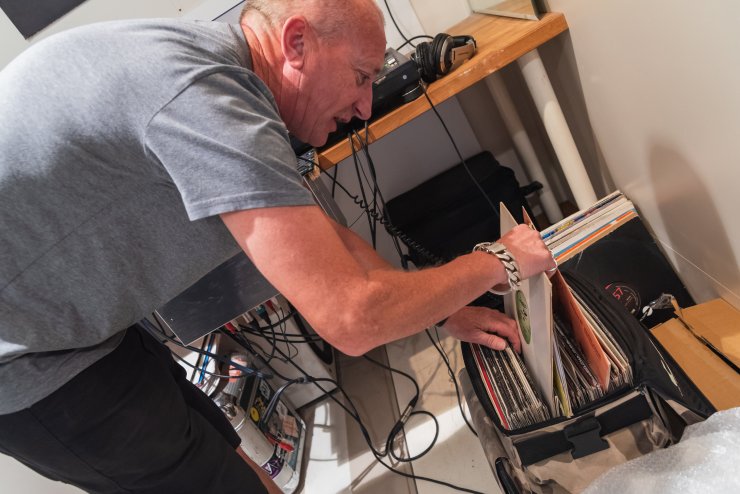
DB: They really had no idea what you were talking about. Now, with the exposure of the internet, it has opened it up to everyone. You know, globally, you see a playlist somewhere and you can go and download it straight away. It's crazy!
It used to be, you hear them play a record and they didn't want to show you what it was. That was the thing. Because I've spent time finding MY records, why am I going to tell you what it is? You go and find it.
People would cover up labels, they'd actually buy labels to stick over the labels to stop people from finding out what it is. Now Shazam's fucked it. Don't get me wrong, it's amazing! Genius. You know, I use it I'll admit.
You're driving along, you hear something you like on the radio and you use it.
For me, you used to hear a record you wanted and you'd spend time trying to find it. Now it's not like that - it's disposable. The days of actually having a collection, and people really nurturing their collection, they're gone.
You could have 50,000 tracks on your iTunes or whatever, and that's completely disposable.
But having a tangible sleeve that you can hold and you can smell…
DB: Beautiful! Exactly. One of the things I used to get from the sixties, break the seal, smell the 60-year-old air. Amazing, you know that's all gone. My daughter is twenty-one years old, and she's still into it.
She still uses Spotify and stuff, but she's actually into owning things, collecting things.
It does make you wonder what the music museums of the future will have in them. Hard drives?
DB: This is an acetate. Smell that. That was used at the beginning of the record producing process. You would cut an acetate, and then get the stamp that's from it for bulk production.
This acetate would probably only last 50 plays. I went to Tony Humphreys house once and he had a room full of them - a whole room dedicated to them. I don't know how many were in there, but not many people cut acetate any more.
Are there any duplicates in your collection, do you think?
DB: Oh yeah. Yeah. Yeah, ‘cos if I like the record, and I see it somewhere and it's cheap then I'll buy it. (laughs) It used to be SO exciting when new records came out. You know the import van would turn up with a big stack of records. That thrill of breaking them open - there's nothing like it.
DB: I actually remember when Crystal Waters came out. That was such a massive record. And when it was on import, you literally couldn't get enough copies of it. It really crossed over. You'd get regular people coming in saying "have you got that one that goes la da dee la da daa?" It was a huge record, you just couldn't miss it.
What do you think is the rarest record you own?
DB: Erm… I've got a seven inch of this record by Glenda McCleod called No Stranger To Love. It's a modern soul record, but the guy who found it, he'd gone to America to do a piece on electro, and his company had put out this seven inch and it became a big, big record.
DB: Friends of mine have got records worth thousands. On the soul scene, there are loads that are now one thousand, two thousand, three thousand pounds for a record. It's crazy! Not many house records go for that sort of money.
DB: I think one of the most expensive is Kerry Chandler's Superlover - that's quite expensive, the first record he ever did. But generally, most house records get pressed in pretty big quantities.
There are some records that I put out on a record label I ran years ago, and I know that there are only 50 copies of it existing ‘cos I only pressed 50! I've still got some.
Do you want to hear another record, or shall we crack on with the interview?
Silly question. It was telling that Dave hadn't considered the interview to have begun, despite us talking non-stop for the past 20 minutes. When you do something you love, you'll never work again...
Yeah, let's hear one more.
DB: There's a good mix on here, but I can't remember which one it is. Listen… this is it, this is good. This record was originally on Motown. When I had the record shop, Hippie Torrales did the original mix on this, and he brought it into us on a cassette and asked if we wanted to put it out.
DB: We told him the record was too big! He ended up going to Motown and it became a colossal record. For me, WILDCHILD is this kind of thing. And then some older stuff, you know?
Originally, the idea was that we would start with maybe a little bit of hip-hop and a bit of swing beat and stuff like that, but during that transition stage we discussed.
But it's really complicated because people are not used to hearing those different styles in a club anymore. It used to be fairly normal to hear a real combination of music but it's quite unusual nowadays.
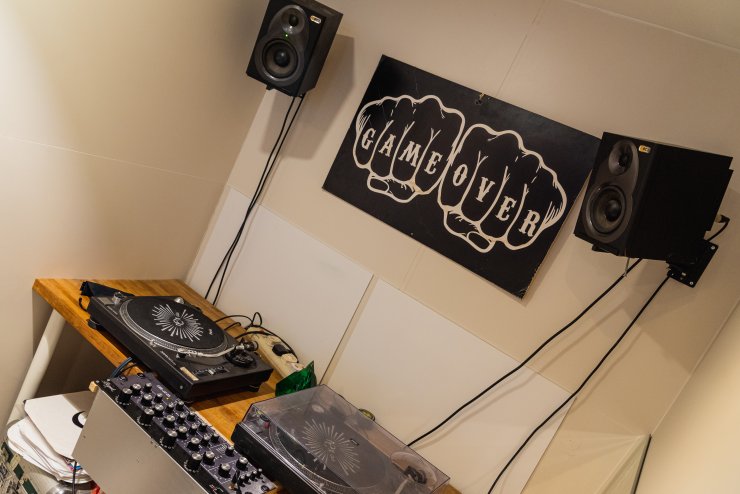
"Nowadays it's sync, sync, sync - boring as fuck!"
Two of the best sets we've heard this summer so far have been Tim Sheridan after IMS at Paradise Lost, playing everything. And Graham Sahara at Pacha restaurant playing…
DB: … Playing everything. It's amazing when you do hear it, but it's difficult on a dance floor. If you're into house music now, then you're really into house music. But for me, if it's a great record then it's a great record. I personally don't like swing beat but some people do.
The idea of hearing a hip-hop record in the middle of a house set would really throw quite a few people off a bit because everyone mixes. But it shouldn't be like that. Back in the day, people wouldn't mix so much. They just used a filter between records.
Now people don't do that - everyone wants to mix. And if they don't mix… But, yeah, quite often because it's mixed, it is seamless. I like it if it's a little bit out and you see the DJ actually working to try and keep it in. That's the magic of it.
If it's just sync, sync, sync, then it just gets boring as fuck!
We really miss those Coxy funk, soul and disco sets at Sands. They were incredible days.
DB: Oh yeah, fantastic! Well, we keep working to try and do another one. We planned to do one this year, but he's got too many gigs already. Yeah, we had planned to do one. The beauty of it at Sands was it was free! You know, you could just turn up there and it was a free party. Now to do it free, it…
It would be mobbed, wouldn't it?!
DB: Yeah! I don't know, this summer….
We're certainly noticing that the island is busier already this summer than what it was last summer. On the roads, in the car parks... in the clubs!
DB: Perhaps? Different people, though. That's what we're seeing. Certainly in Playa d'en Bossa. It's completely different now.
It's a different place - for the bars and ticket vendors in Playa d'en Bossa. You know we like to go out and see the owners, the sellers and everything to see what's going on.
For all of them, it's a really difficult time at the moment. You know, it's going through a real transition stage.
It's an ecosystem, right?
DB: Yeah, exactly. We're getting caught up in the whole ethos that we want it to be a bit like Vegas. We pick tourists up at the airport, then take every penny at the hotel and at the restaurant or on the slot machines - and they only spend money in my business and then they leave.
It's not good. You know, where Ibiza is concerned, everyone should be able to have their little bit. Otherwise, it's all gonna go. Competition is healthy, you know? There has to be that little bit of creativity somewhere...
The impetus to do better than the person next to you or even better than you did last time.
DB: And you get to the stage where they then can start to dictate what the scene is. I think that was the case when SFX started to buy all these festivals a few years ago. I was looking at it thinking, that's a really complicated thing for a corporate business to try and do.
Generally speaking, festivals and club shows all revolve around the promoter. That's the person who started it because he's the one that's got the feeling. If you start buying it and turning it into a corporate business, that magic goes. And without the magic, it's all fucked!
Extramarital infidelity at DC10
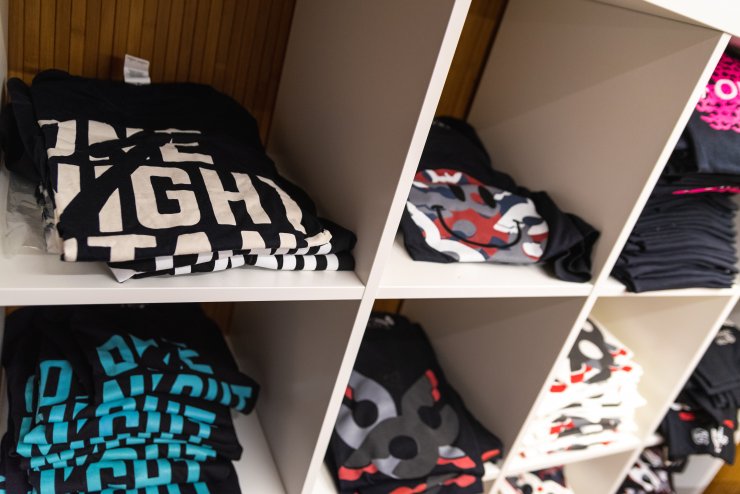
Last summer, ONE NIGHT STAND landed on Ibiza to a hugely positive reception. Dispensing with the traditional format of a residency at a single home, the round-robin made pitstops for takeovers around the island.
Having tested the waters, the Coxy-led party is back for 2019. Though it would seem it has shrugged-off its nomadic tendencies and settled on a permanent home.
Let's shift our focus to ONE NIGHT STAND. More of a sordid affair this year, three dates with DC10. The assumption we take from that is the date there last summer must have worked incredibly well?
Dave Browning: In my opinion, it was the best night of the summer. It really was, you know. For the crowd, atmosphere, music - everything! It gave us a chance to flex our muscles a little bit. You know, we played all over the island last summer. But DC10 was the stand-out show for sure.
Despite the fact that its profile gets bigger year after year, it is really the only big underground club that's left on the island. With that comes a lot of history, and I suppose, a lot of pressure too. To deliver something that meets expectations?
DB: Absolutely, and I think this year more than ever is gonna be complicated for everyone here. So we're going to stick to our modus operandi and do what we always do: throw great parties.
You know the primary thing, when we're looking at all these big parties is this: would I wanna go myself? Those shows at DC10 for sure are gonna be some of the highlights of the summer.
What is it about DC10? Is it the crowd, the line-up, the history? A combination of factors? What makes that club so special?
DB: It's the mystique of DC10, you know it's the…
The legend?
DB: Yeah, the legend. It's also a military operation. After putting on events at some of the less organised clubs, is a breath of fresh air. They were amazing, really professional, really efficient. The entry system there is incredible. Really, really slick. So yeah, we're very happy with our relationship.
Looking ahead to beyond this season, what does the future hold for ONE NIGHT STAND?
DB: Our long term plan is to make sure that this coming winter that we start to do more events outside Ibiza. I think we're at the level now where we can start to book good talent without necessarily having to rely on Carl as being our headliner.
We're pushing to do a ONE NIGHT STAND with other named DJs, bring in some fresh talent and then take it on tour.
Last summer, you did a few link-ups with Amnesia for Pyramid - rooms takeovers. Is that still going to be the case this year?
DB: We're doing various operations for other promoters, but we're not actually going to be hosting parties under the Game Over name. That's not the priority at the moment. But we're in a very fluid situation, even more so than we've been previously.
The other party we run is LiFT - our underground event that we do in winter. We did one at Pacha, one at HEART.
Your range of events covers a good spectrum. From accessible to underground to off-radar.
DB: Yeah, that's the idea. With WILDCHILD we have something we think we can take to London or to Dubai - that's our more commercial sound. But then the underground parties we could export to Berlin… or Amsterdam? That's the plan... in an ideal world (!) (laughs)
Or maybe we'll just be sitting in this office in Ibiza in a few years thinking, "fuck, what happened?" But we're forever optimistic.
Teenage rebel at heart
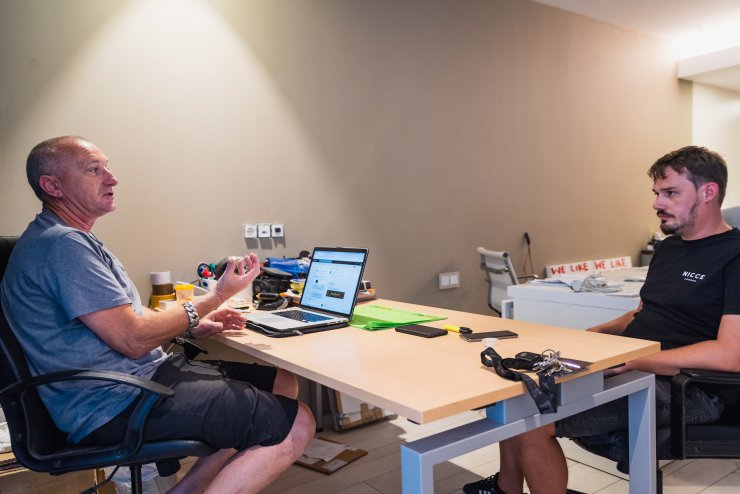
World-weary and cynical? He might be. But could be accused of being curmudgeonly? Hardly. There's still a glint in his eye. A rebellious streak, keen to sock it to the man.
The state of play has changed. Dave doesn't think for the better. But what can you do? You could complain and still be complicit. Or you could be the antidote to the injustice you perceive.
Dave Browning: People announce far later than they normally do. We were the same. In some cases, we were only getting the contracts signed a month ago. Normally, we've got that tied-up by the end of November - everything's locked in. It's changing times.

"I don't think we anticipated how much things were gonna change after Space."
What do you think have been the factors influencing that?
DB: I think because Ibiza is going through a transition - that's the truth of it. You know, Space was the beginning and the end and that added stability to the island. I don't think people anticipated how much things were gonna change after Space closed. I think the magic of that opening and closing weekend has gone because everyone now is now pushing to maximise their profits.

"Brand Ibiza is being exploited."
Are we're in danger of spreading the crowd too thinly?
DB: Of course we are! People used to book for the opening weekend, probably not sleep for two or three days and then go home. Now people are pushing those openings earlier and earlier.
I do understand why they want to extend the season, but unfortunately, we're not in a situation where all the clubs can sit down together, along with the politicians and say "right, so to extend this season, let's do it sensibly in the right way and look after brand Ibiza."
You know, brand Ibiza is now being exploited. It's not being nurtured.
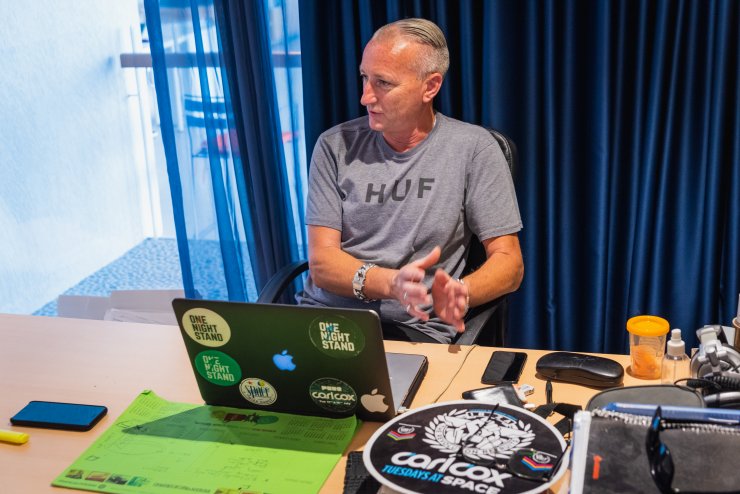
"The perception that clubbing is a negative for Ibiza is wrong."
Do you think there needs to be a better dialogue between the authorities and the industry and a bit more understanding on both sides to help us find a resolution and a balance for everybody? For all the stakeholders.
DB: 100%. Everyone's being greedy. You know, we were waiting for the elections on the 28th and hoping that the result is actually going to bring some positive change. I think the perception that the clubbing industry is negative for Ibiza is completely wrong.
It's been a huge positive for decades - it just needs to be managed better. And now with the big change of the old guard in the clubbing industry here: Privilege in the situation that they are in, Amnesia going through a bit of a tricky time, Pacha obviously being sold to the Americans and Space gone, there's a real change and I think some of the older club owners haven't been willing to change their mindset and catch up with the times.
There are corporate businesses now in Ibiza, and that changes the way things are run. This industry is a very creative industry. It's too complicated to try to run it like a bank. We all have to make money, of course we do. We have to watch what we're spending and justify every penny with forecasts and predictions.
Let's be honest, we don't do board rooms very well, do we?
DB: No, we don't. Sometimes you win, sometimes you lose. In an ideal situation, you'd never lose. But sometimes it's a gamble. We try and put on the best events we can. Hopefully, it resonates with people and they buy into it. But it's complicated.
There's no formula to success. One of the other issues now is that the corporate businesses that have come in are prepared to pay over the odds to make sure they've got the talent they want - as we've seen on the festival circuit.
Ultimately, that leaves some of the smaller promoters and smaller clubs in a difficult situation. We can't compete economically. We simply can't justify the figures for the potential return.
In a way, might that indirectly help push through the next wave of talent? Because for a long time, people have been commenting on how line-ups are a bit stagnant. You know, we had a bit of a merry-go-round this winter, with a lot of established residents moving onto new clubs.
Yet we've arrived at summer, and it's still the same faces who have bagged a residency. Was that not an ideal opportunity to shake things up and try something different?
DB: Of course it was. But you know the really difficult thing is that if you go to any club globally - any club, and they ask "Right, who ya gonna book?'"If you're not booking from that first top fifty DJs, they get very nervous!
"We want to push new talent all the time."
There's too much money at stake?
DB: Yeah, if you're booking from that top fifty DJs then economically, it becomes very fraught. For us, we want to push new talent all the time. For want of a better word, we're underground promoters. Like DC10, we try and stay a little bit ahead of the curve and hope we can build up a good reputation of throwing great parties and bringing new talent through.
We've been fortunate we've had Carl to prop up for some of the events. This has allowed us to bring in some really exciting new people.
I think you can see from the line-ups last year, that you did that. Carl was the marquee act and occasionally you might have Adam Beyer or Cassy there, but there was a lot of fresh talent getting exposure.
When you've got a packed venue, ultimately, half the people in that club are going to have to go to the second room and they're gonna catch these guys, maybe on the off-chance.
DB: Yeah, exactly. That's why we put Spokenn on immediately before Carl. From his perspective, that was completely revolutionary. He didn't know who those guys were before they played because they weren't on his radar.
They absolutely rocked the place and afterwards, he was saying “Fucking hell, they're absolutely amazing!” But you know, he's a main stage DJ; those guys aren't. A lot of the guys that we're booking, they're great to work in a club with two and a half thousand capacity, anything bigger than that it doesn't really suit.
And I'm happy, as a promoter, I wanna throw parties at that sort of size - so long as it makes sense economically.
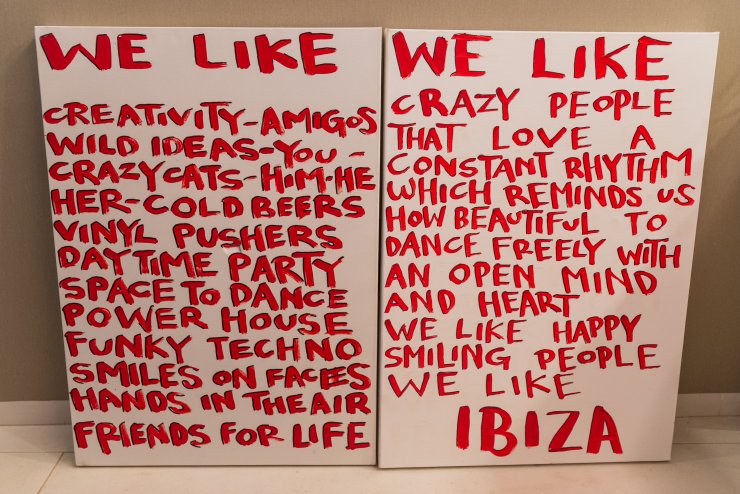
"We want the DJs we book to be part of a community."
Is it hard programming set-times when you've got these artists and you think; oh, you really want to put this guy or this girl on first but their flight out is earlier, so I've got to switch it around. Is that a problem?
DB: It's a fucking nightmare! The fortunate thing about doing a show at DC10 is everyone wants to play it. And they want to arrive early and hang around as much as possible. Most of the guys don't just want to fly in and fly straight back out.
That was one of the things when we were doing the Music Is Revolution shows at Space, everybody who played came and stayed at the villa. Artists came and stayed for two or three days around the party and hang out a little bit. I'm convinced it changes the way they play.
If they stay at the hotel, go and do the gig and then fuck off, it's a different mindset - it becomes just another gig. We want people to be part of the community.
Space is the place

Surrounded by posters from the 15-year stretch and some of the production used, it was like being in a museum. It was the elephant in the room. We weren't sure that it was appropriate to quiz Dave on the current status of Space. But we would have kicked ourselves had we not.
Ibiza Spotlight: You touched on the local election results earlier. From your perspective, how have those results been received? Is it a result for where we can envision new licenses being granted, or was it not quite as promising as we previously hoped?
Dave Browning: No, I think it's a move in a positive direction. I'm not certain that there'll be new licences granted, but I think what we want is for people to be sensible about what they're doing, and not too restrictive on volumes or opening times.
Most other places in the world you can go and dance far longer than you can here and they don't have the noise restrictions we have. We don't wanna disturb the people in Ibiza, of course we don't. But we do wanna do things in a constructive manner.
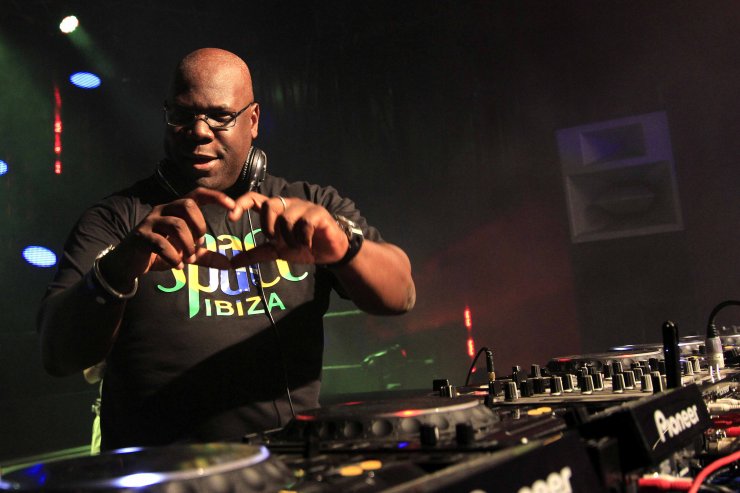
"Ibiza needs Space."
With that in mind, it feels appropriate we end on asking if there is any more news on the future of Space?
DB: At this time, there is nothing concrete. But there are positive steps being made. I'm optimistic. There is shit going on. We've had numerous positive meetings about the future of the club.
I think Ibiza needs it. It would be a positive thing for Space to open a new venue, as opposed to taking on an existing one. And it is possible.
You've got to dream big. You've got to have a vision. Aim high, right?
DB: Absolutely. You know, we've been working at it for a long time. Since the club closed, really. We've been looking at all the options. And it's looking positive. So...
Keep your eyes on the billboards?
DB: Keep your eyes on the billboards!

WORDS | by Stephen Hunt
PHOTOS | by Michael Tomlinson
WILDCHILD returns on Saturday 6 July with US house and garage legend, Matt Jam Lamont. The other acts appearing are three-piece Mischief Makers, while Dave Lubin gets the chance to play a solo set after a handful of back-to-backs.
Grab tickets below and release your inner wild child.
